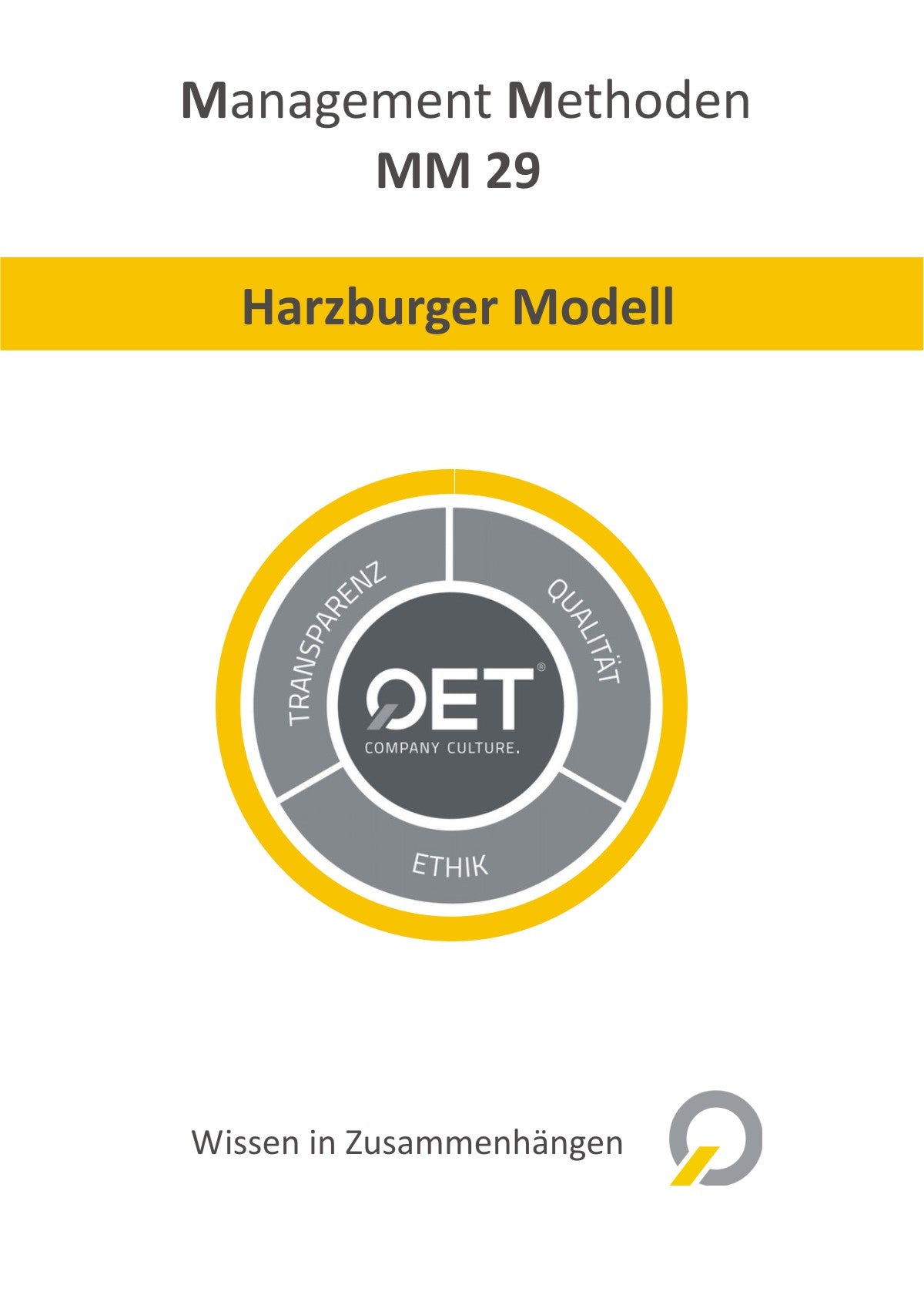QET Corporate Culture
MM 29 Harzburger Model
MM 29 Harzburger Model
Couldn't load pickup availability
The Harzburg Model is a form of management based on the transfer of responsibilities within a corporate hierarchy through delegation. It is thus the forerunner of management by delegation and management by exception. It was named after its place of origin, the Academy for Business Executives in Bad Harzburg.
The Harzburger Model consists of 350 rules in total, but can essentially be reduced to Management by Delegation (see M20) or Management by Exception (see M21): The supervisor maintains employees to whom he delegates tasks or areas of responsibility and only intervenes in the workflow when the employee faces problems he cannot handle himself. The manner in which the employee carries out the delegation is irrelevant. The role of management, meanwhile, lies in monitoring and controlling the work. This emphasizes a separate area of responsibility for the employee, within which he can act and make decisions freely. The Harzburger Model is therefore strictly results-oriented.
The model is characterized by a meticulously formulated job description that specifies all the employee's competencies and activities.
In the context of:
Q: Q01, Q05
E: E02
T: T14
Share

